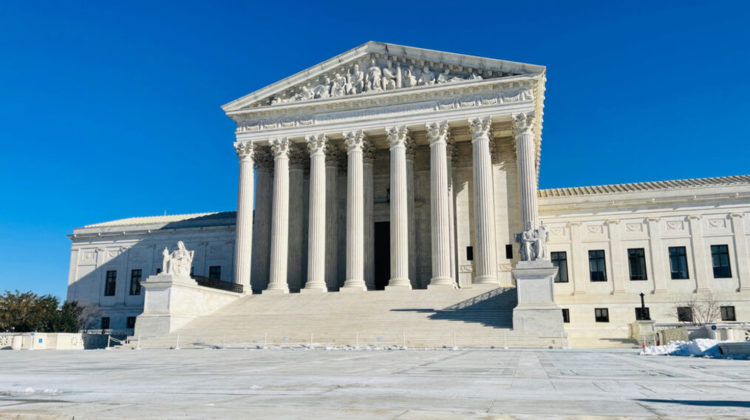
WASHINGTON DC — In a 6 to 3 ruling today, the Supreme Court limited the Environmental Protection Agency’s authority, preventing the agency from exercising it’s claimed power to reduce carbon emissions in concert with the Biden administration’s April 2021.
In a ruling that angered climate change activists, Chief Justice John G. Roberts Jr, writing the majority opinion, said that the EPA had not received proper authority from Congress to limit carbon emissions.
It was believed, that the Clean Air Act in concert with initiatives put forward by the Obama administration, that the EPA had all the authority it needed, but that is not the case.
At issue, is the question in the case, West Virginia v. Environmental Protection Agency, No. 20-1530, whether the Clean Air Act allowed the EPA to codify sweeping regulations that have the force of law, without proper Congressional involvement.
The key issue, in this writer’s opinion, is that any rights of the body corporate, We The People, cannot be infringed without proper consent from the people. Congress provides the mechanism of consent at a national level, especially since the supposed climate change science is hardly a settled issue. The EPA cannot unilaterally act as if it has that de jure authority. If SCOTUS did side with the EPA, it would have, in effect, authorized the EPA’s side-stepping of the people’s rights through Congress. And SCOTUS would have, in effect, granted rights to the EPA in a similar way that Roe v Wade created rights in the recently overturned ruling from the ’70s.
The decision exposed the judicial activism of some of the liberal justices in the court.
Justice Elena Kagan, in dissent of the ruling, said,
“Whatever else this court may know about, it does not have a clue about how to address climate change,” … “And let’s say the obvious: The stakes here are high. Yet the court today prevents congressionally authorized agency action to curb power plants’ carbon dioxide emissions.”
Whether SCOTUS “does not have a clue about how to address climate change” isn’t the issue. The issue is whether the EPA can grant itself rights it never had to address climate change—which is not scientifically proven to exist. And if the highest court in the land should go along with the EPA’s renegade strategies.
The fact that a sitting justice doesn’t seem to understand the importance of Congress and is all too ready to use SCOTUS to manufacture rights and legislate from the bench has alarmed many.
Patrick Morrisey, the attorney general of West Virginia and one of the leaders of the challenge to the E.P.A.’s authority, welcomed the decision.
“E.P.A. can no longer sidestep Congress to exercise broad regulatory power that would radically transform the nation’s energy grid and force states to fundamentally shift their energy portfolios away from coal-fired generation,” he said.
Morrisey appears to understand the deeper constitutional attacks underpinning climate activists to assume any and all power to implement their green agenda.
Richard Lazarus, a law professor at Harvard, said “the court’s ruling is a major setback for E.P.A.’s ability to address climate change, and it could hardly have come at a worse time.”
“By insisting instead that an agency can promulgate an important and significant climate rule only by showing ‘clear congressional authorization’ at a time when the court knows that Congress is effectively dysfunctional, the court threatens to upend the national government’s ability to safeguard the public health and welfare at the very moment when the United States, and all nations, are facing our greatest environmental challenge of all: climate change,” he added.
The comments by Lazarus and Justice Kagan are alarming because they are essentially arguing that the challenges of going through the proper Congressional process are too great, and, in effect “the ends justify the means.” But if anyone should be arguing for adhering to the proper congressional process, it should be a justice of the Supreme Court.
The ruling did not hinder the EPAs ability to regulate the energy sector, it merely pushed back against the agency’s attempt to claim powers it was never given by Congress.
Read more about the questionable science of the EPA in our article here.
Justin Deschamps is an epistemologist, researcher, and public speaker, passionate about omniology. He discusses a wide range of topics for the betterment of mankind in and through the enhanced capacity to think critically, discern wisely, and expose corruption. He hosts Vigilant News and Knowledge Based on Badlands Media, and writes, produces, and hosts the show Into The Storm on Rise.tv.


Leave a Reply